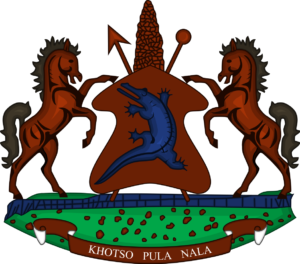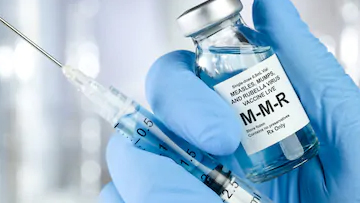The Ministry of Health will conduct the National Integrated Measles and Rubella (MR) Vaccination Campaign and COVID-19 from 25th October to the 5th November 2022.
Children between 0 to 59 months are eligible for the MR vaccine.
This was disclosed at a press briefing held at the Ministry of Health Headquarters on Tuesday.
In line with the global strategy for measles and rubella/Congenital Rubella Syndrome elimination, Lesotho decided to leverage the measles Supplementary Immunization Activities (SIAs) to administer Measles Rubella Vaccine in order to prevent the epidemiology of measles and rubella in the country.
The rationale behind the COVID-19 campaign is for Lesotho to reach the target of seventy percent (70%) of the population eligible for taking the COVID-19 vaccine to reach herd immunity.
Lesotho decided to leverage the measles Supplementary Immunization Activities (SIAs) to administer Measles Rubella Vaccine
This means enough people will have been vaccinated to curb the spread of COVID-19 among the Basotho.
Speaking at the event, the Surveillance Officer in the Ministry of Health, Mrs. Malikhetho Motenelapi said the purpose of the MR vaccine is to reach and protect all children, especially those who previously missed the routine immunization services, adding that it will also protect children who did not develop immunity after the 1st dose of the MR vaccine.
She noted that the provision of routine immunization service was interrupted during the COVID-19 pandemic, hence the need to catch and avert future outbreaks of vaccine-preventable diseases, saying there are confirmed cases of Measles outbreaks in some districts.
Also speaking, the Expanded Programme Immunisation Officer, Ms. Malefaso Mosese said vaccines for the SIAs were funded by the Government of Lesotho with support from the GAVI, World Bank, and UNICEF Lesotho.
She noted that the Procurement of vaccines and other supplies of Vitamin A, and Syringes is facilitated by the UNICEF Lesotho and the UNICEF supply division.
She stressed that Only WHO-prequalified and approved vaccines will be used for the campaign thus Johnson and Johnson (JNJ) and Pfizer.
The campaign will be conducted in all ten districts.








OTHER ARTICLES
Editorial — Prevent, inform, and act for women’s health in Africa
Kenya : Government Prioritises Maternal Health and Strengthens Support for Community Health Promoters
Strengthening pandemic prevention, preparedness, and response capacities in Senegal using the “One Health” approach